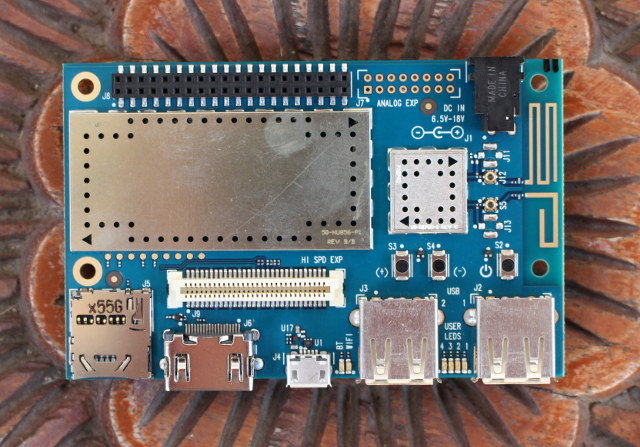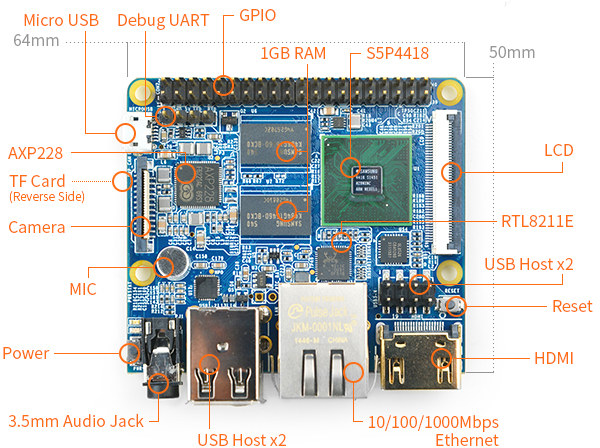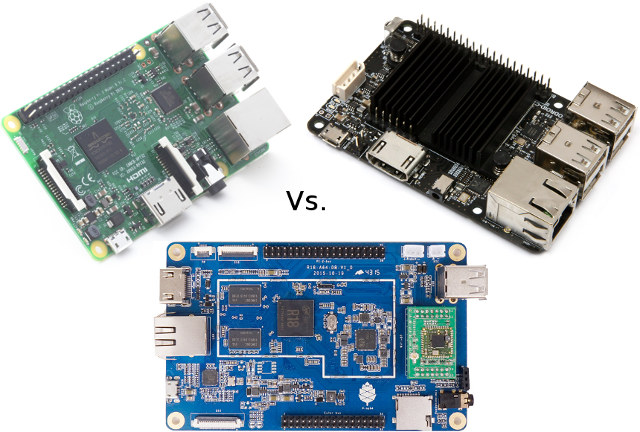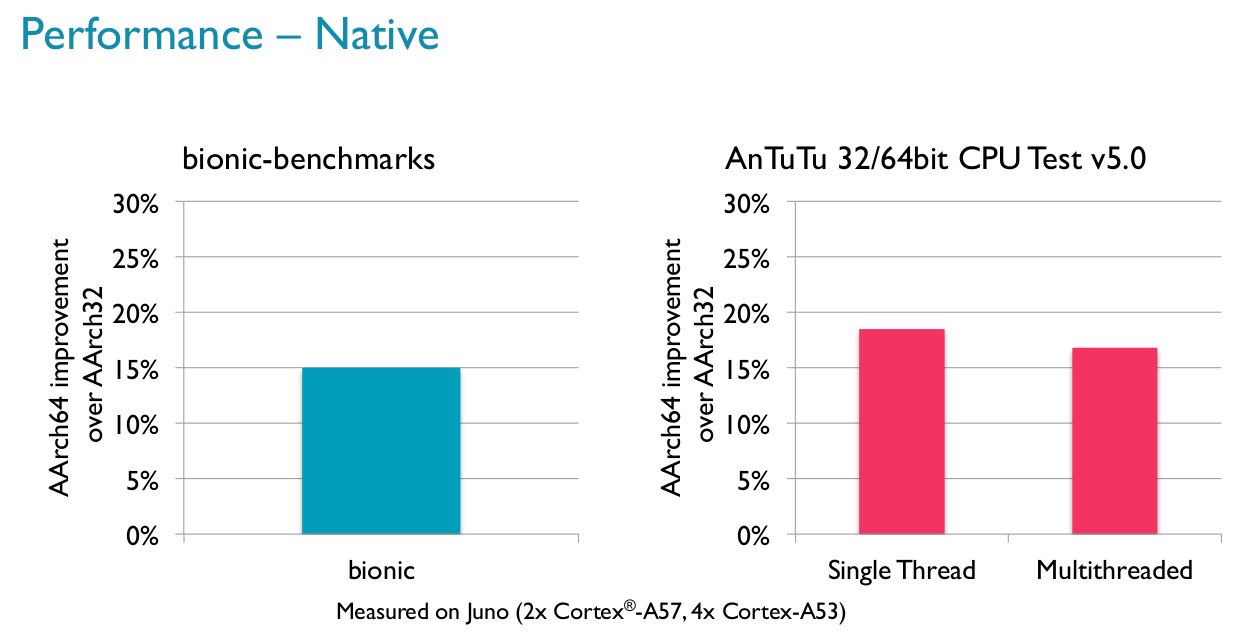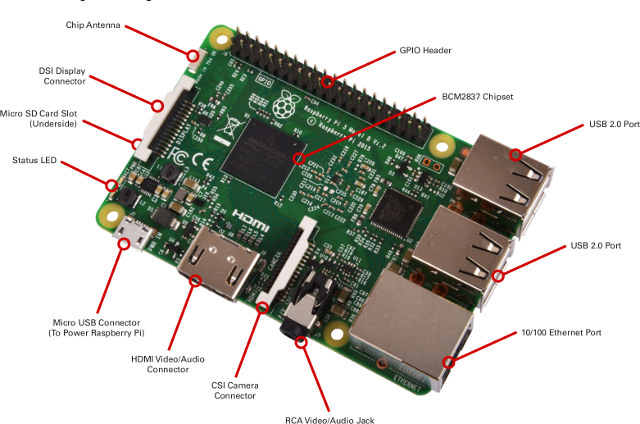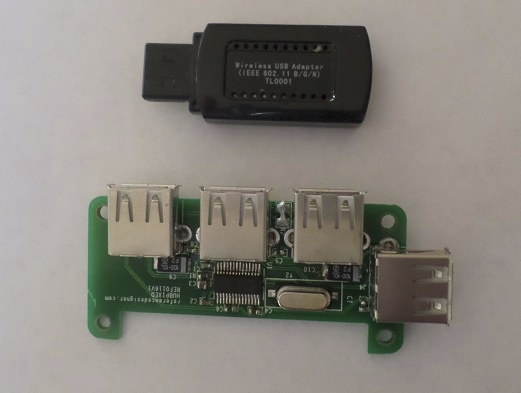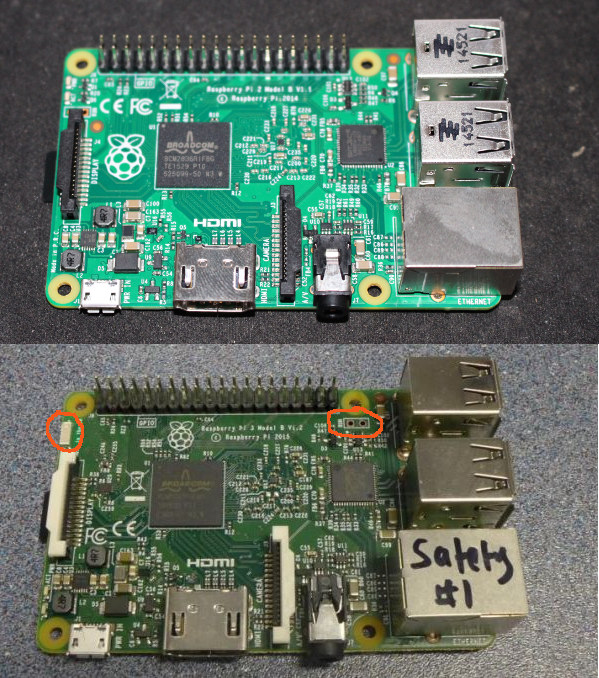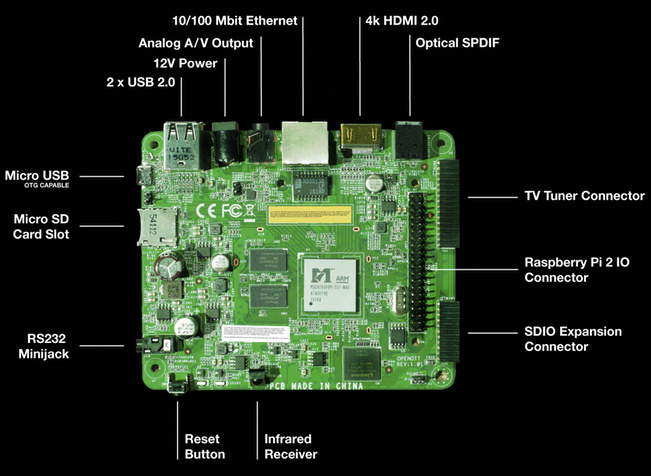Based on the number of comments I get when I organize giveaways, I think people like freebies. I don’t have anything to give away today, but others have launched competitions to win free developments, and Seeed Studio is having a promotional event with some discount on IoT boards. DragonBoard 410c Boards “Maker Month Contest” Qualcomm has declared March as Maker Month, and is asking developer to tell them what they’d make with a DragonBoard 410c board for a chance to win the board and up to $5,000. All you have to do is to submit your idea on DragonBoardContest.com, and every week, the company will give 7 to 10 boards (31 boards in total) to the people with the best ideas as selected by popular vote. The contest has two part: Part 1 – Submit your idea as mentioned above – Open between March 1 and March 31, is open […]
$30 NanoPi-M2 Board Packs Raspberry Pi 2 Hardware Features in a Smaller Form Factor
FriendlyARM had already launched two NanoPi boards powered by Samsung S5P4418 quad core processor, namely NanoPi 2 and NanoPi2 Fire, that were especially interesting due to their small size (75 x 40 mm) for the features including HDMI output, a camera interface, and either WiFi + Bluetooth or Ethernet. The company is now back with a third larger board, but still compact, removing the wireless module, but adding an audio jack and more USB ports, while keeping the price about the same. Meet NanoPi-M2: SoC – Samsung S5P4418 quad core Cortex A9 processor @ 400 MHz to 1.4GHz with Mali GPU including two pixel processors, and a geometry processor. System Memory – 1GB 32-bit DDR3 Storage – 1x Micro SD Slot Connectivity – Gigabit Ethernet RJ45 port (via RTL8211E) Video Output / Display I/F- 1x HDMI 1.4a, 0.5 mm pitch SMT FPC seat for type-A full-color LCD (RGB: 8-8-8) with […]
Raspberry Pi 3, ODROID-C2 and Pine A64+ Development Boards Comparison
Raspberry Pi 3 and hardkernel ODROID-C2 launched the same day, and together with Pine A64/A64+, are the only ultra low cost (<$40) 64-bit ARM development boards available or soon-to-be available, so I’ve decided to make a comparison of the three boards the same way I did with ~$10 boards with a Raspberry Pi Zero, C.H.I.P, and Orange Pi One comparison. I’ve used features of Pine A64+ instead of Pine A64 since features and price are closer to the other two boards. Text highlighted in green means a board is clearly better than the other two for a given features, while a red highlight means it’s the weakest of the three. Raspberry Pi 3 ODROID-C2 Pine A64 Plus Processor Broadcom BCM2837 quad core Cortex A53 processor @ 1.2 GHz(4x ~2760 DMIPS) Amlogic S905 quad core Cortex A53 processor @ 2.0 GHz(4x ~4600 DMIPS) Allwinner A64 quad core Cortex A53 processor @ […]
64-bit ARM (Aarch64) Instructions Boost Performance by 15 to 30% Compared to 32-bit ARM (Aarch32) Instructions
Yesterday was quite an eventful day with the launch of two low cost 64-bit ARM development boards, namely Raspberry Pi 3 and ODROID-C2, and as usual there were some pretty interesting discussions related to the launch of the boards in the comments section. One of the subject that came is that while Raspberry Pi 3 board is using a 64-bit processor, the operating systems are still compiled with 32-bit instructions (Aarch32) and even optimized for ARMv6, and they intend to keep it that way according to Eben Upton interview: Eben readily admits that not all the capabilities of the new parts are going to be used at launch, however. “Although it is a 64‑bit core, we’re using it as just a faster 32-bit core,” he reveals about the Pi 3’s central processing unit. “I can imagine there’d be some real benefits [to 64-bit code]. The downside is that you do […]
Raspberry Pi 3 Board is Powered by Broadcom BCM2837 Cortex A53 Processor, Sells for $35
Raspberry Pi 3 board was first found on the FCC website, and thanks to various other leaks we had a pretty good idea of the board specifications including a Broadcom 64-bit ARM processor coupled with 1GB RAM, WiFi and Bluetooth, as well as basically the same features and ports as Raspberry Pi 2 Model B. But with the fourth anniversary of the Raspberry Pi Model 1 board, Raspberry Pi 3 has now officially been launched, and you can now purchase the board for $35. Raspberry Pi 3 specifications: SoC – Broadcom BCM2837 64bit ARMv8 quad core Cortex A53 processor @ 1.2GHz with dual core VideoCore IV GPU @ 400 MHz supporting OpenGL ES 2.0, hardware-accelerated OpenVG, and 1080p30 H.264 high-profile decode. Capable of 1Gpixel/s, 1.5Gtexel/s or 24GFLOPs with texture filtering and DMA infrastructure System Memory – 1GB LPDDR2 Storage – micro SD slot Video & Audio Output – HDMI 1.4 […]
Hubpixed is a Neat and CableFree USB Hub for the Raspberry Pi Zero (Crowdfunding)
While the Raspberry Pi Zero is not exactly broadly available, there are still several tenths of thousands who own, and I’ve seen several use a USB to OTG adapter combined to a USB hub to add USB devices such as a WiFi dongle, or/and keyboard. This works, but it’s quite messy. That’s why Vikas Shukla created Hubpixed USB hub for the Raspberry Pi that does not require any cables and cleverly uses the test pins on the back of the board for USB data and power. The board’s spring pins are the only electrical connections between Raspberry Pi Zero and the hub, with both boards attached with spacers, screws and bolts using the four mounting holes of RPi0. Vikas also showed the hub in action with a USB WiFi dongle. I’m not sure how it would fare with a USB hard drive however. Hubpixed is on Kickstarter, and has already exceeded […]
Raspberry Pi 3 Model B Board Features a 64-Bit ARM Processor, Adds WiFi and Bluetooth Connectivity
The Raspberry Pi foundation is working on yet another model of the popular Raspberry Pi boards, as the Raspberry Pi 3 model B board has showed up on the FCC website. The new board looks very similar to Raspberry Pi 2 model B, but adds on-board WiFi 802.11 b/g/n (2.4GHz only) and Bluetooth 4.0. Let’s play “spot the difference” with Raspberry Pi 2 at the top and Raspberry Pi 3 under. The processor looks the same as the BCM2836 quad core Cortex A7 SoC found on model 2 B, but one redditer claims it could be a 64-bit processor due to some MagPi ad. [Update: that’s the MagPi ad which confirms Raspberry Pi 3 will feature a 64-bit ARM processor @ 1.2 GHz. Thanks Gabe! ] We’ll find the WiFi/BT chip antenna on the top left corner, and two through holes on the right of the 40-pin connectors, likely the […]
Rho Board $35 Mstar MSO9280 Development Board Supports an Optional DTV Tuner (Crowdfunding)
Futarque A/S, a Danish company specializing in digital TV (tuners, IPTV), DVD and Blu-ray solutions, has developed the Rho Board powered by Mstar MSO9280 quad core ARM Cortex A7 processor with 1GB RAM and 4GB NAND flash, and featuring HDMI 2.0 output, a Raspberry Pi 2 compatible expansion header, and a TV tuner connector for an optional DVB-T2/C tuner. Rho board specifications: SoC – Mstar MSO9280PBM quad core Cortex A7 processor with an hexacore (4+2) Mali-450MP GPU System Memory – 1GB DDR3-1666 Storage – 4GB eMMC flash + micro SD slot up tp 128GB Video Output – HDMI 2.0 and AV ports Audio Output – HDMI, AV and optical S/PDIF Video Codec – MPEG 1/2, 4K @ 60 fps AVC and 4K @ 30 fps H.265 Connectivity – 10/100M Ethernet USB – 2x USB 2.0 ports, 1x micro USB port Expansion 40-pin “Raspberry Pi” header TV tuner connector SDIO expansion […]


